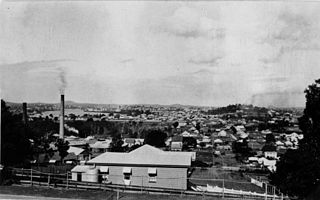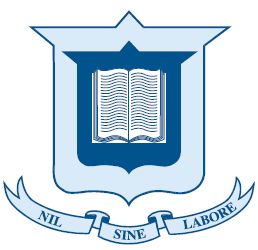The Tanunda Liedertafel is a 45-member male choir in Tanunda, South Australia. Drawing its four-part (TTBB) singing material from traditional popular German culture. The group's origins date back to 1850, based on an entry in The South Australian. Previously, the choir researchers had only been able to confirm back to 1861 based on a surviving music book case with the words Tanunda Liedertafel 1861 painted on its metal lid, and a report in the South Australian Register of a concert in Tanunda dated 22 October 1861.

Albion is an inner north-eastern suburb in the City of Brisbane, Queensland, Australia. In the 2016 census, Albion had a population of 2,296 people.

Coorparoo is a suburb in the City of Brisbane, Queensland, Australia. In the 2016 census, Coorparoo had a population of 16,282 people.

The Queensland Performing Arts Centre is part of the Queensland Cultural Centre and is located on the corner of Melbourne Street and Grey Street in Brisbane's South Bank precinct. Opened in 1985, it includes the Lyric Theatre, Concert Hall, Playhouse and Cremorne Theatre.

Woolloongabba is a suburb in the City of Brisbane, Queensland, Australia. In the 2016 census, Woolloongabba had a population of 5,631 people.

Rocklea is a suburb in the City of Brisbane, Queensland, Australia. In the 2016 census, Rocklea had a population of 1,595 people.

The culture of Brisbane derives from mainstream Australian culture and incorporates a strong history in the performing arts, music and sport.

Voices of Birralee is a non-profit youth choral organization, based in Brisbane, Australia, which has gained a reputation for its leading choirs, that have performed in front of audiences in both Australia and across the world.

Bulimba is a suburb in the City of Brisbane, Queensland, Australia. In the 2016 census, Bulimba had a population of 6,843 people.

Mount Ommaney is a south-western riverside suburb in the City of Brisbane, Queensland, Australia. The mountain of the same name is located within the locality. In the 2016 census, Mount Ommaney had a population of 2,360 people.

Brisbane Grammar School (BGS) is an independent, non-denominational, day and boarding school for boys, located in Spring Hill, an inner suburb of Brisbane, Queensland, Australia. It is the oldest secondary boys school in Brisbane. Some of the Brisbane Grammar School Buildings are listed on the Queensland Heritage Register.
Queensland Day is officially celebrated on 6 June as the birthday of the Australian state of Queensland.
Berliner Liedertafel, as the name for a male-voice choir, was first used in December 1808 by Carl Friedrich Zelter, who established the first north German prototype for such male-voice choirs. In 1819 another society was founded by Ludwig Berger, Bernhard Klein, Gustav Reichardt and Ludwig Rellstab and In 1884, Adolf Zander founded the still active men's singing club Berliner Liedertafel e.V.

Leeds Male Voice Choir is a choir of men founded in 1916 in Leeds, West Yorkshire in the United Kingdom. Originally formed from mining workers in Middleton, Leeds, the choir now has a diverse of membership of around sixty active members who perform regularly throughout Leeds, Yorkshire and Europe.

The March of the Dungarees was a snowball march in November 1915 in South-East Queensland, Australia, to recruit men into the Australian military during World War I at a time when enthusiasm to enlist had waned after the loss of life in the Gallipoli campaign. The march began at Warwick with 28 men and followed the Southern railway line through Toowoomba, Laidley, and Ipswich to its destination in Brisbane, gathering 125 recruits along the way.

The Queensland Recruiting Committee was a volunteer organisation in Queensland, Australia, which urged Queensland men to enlist for military service during World War I. It operated from May 1915 to December 1916, when it was replaced by an Australian Government recruitment organisation, the Queensland State Recruiting Committee.
Formed in 1900, the Queensland Patriotic Fund was responsible for raising funds and fund administration to provide financial and other assistance to those who were serving or had served in the armed forces of Australia, as well as offering support to their families.
August Moritz Hermann Heinicke, only ever known as Hermann or Herr Heinicke, was a German-born violinist and music teacher in South Australia. He founded Heinicke's Grand Orchestra and was the first conductor of the Adelaide Conservatorium orchestra.
Queensland Railways Patriotic Fund was established in 1914 by the Queensland Railways Department to support railway workers who had enlisted during World War I, as well as their dependents. As part of the fund, a number of fundraising schemes were implemented including charitable subscriptions by employees, public concerts and railway excursions. By April 1918, it was estimated that over 2,350 Queensland railway employees had enlisted since the start of the war.
The Adelaide Liedertafel is a traditional German male choir, one of several Liedertafeln, or song societies, in the history of Adelaide and South Australia. It is Australia's oldest male choir.












